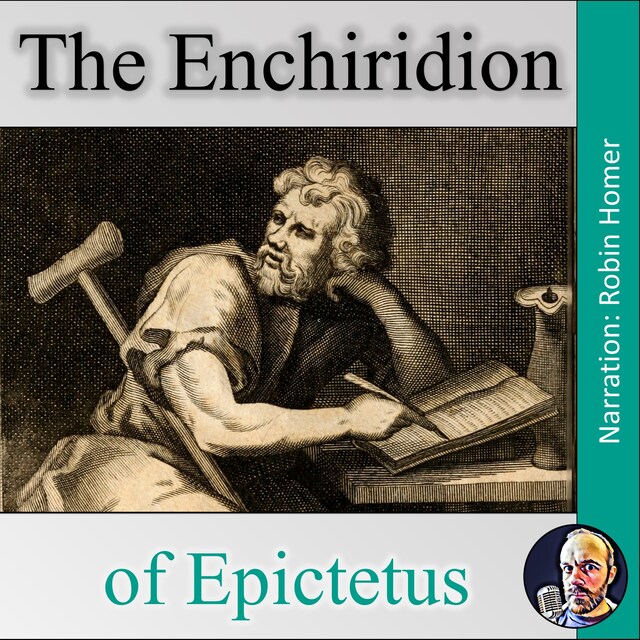
The Enchiridion of Epictetus
Om bogen
The Enchiridion or Handbook of Epictetus is a short manual of Stoic ethical advice compiled by Arrian, a 2nd-century disciple of the Greek philosopher Epictetus. Although the content is mostly derived from the Discourses of Epictetus, it is not a summary of the Discourses but rather a compilation of practical precepts. Eschewing metaphysics, Arrian focuses his attention on Epictetus's work applying philosophy to daily life. The book is thus a manual to show the way to achieve mental freedom and happiness in all circumstances
The Enchiridion appears to be a loosely-structured selection of maxims.[10] In his 6th-century Commentary, Simplicius divided the text into four distinct sections suggesting a graded approach to philosophy:[10]
Chapters 1–21. What is up to us and not, and how to deal with external things.
1–2. What is up to us and not, and the consequences of choosing either.
3–14. How to deal with external things (reining the reader in from them).
15–21. How to use external things correctly and without disturbance.
Chapters 22–28. Advice for intermediate students.
22–25. The problems faced by intermediate students.
26–28. Miscellania: the common conceptions, badness, and shame.
Chapters 30–47. Technical advice for the discovery of appropriate actions (kathēkonta).
30–33. Appropriate actions towards (a) other people, (b) God, (c) divination, (d) one's own self.
34–47. Miscellaneous precepts on justice (right actions).
Chapters 48–53. Conclusions on the practice of precepts.
48. Final advice and his division of types of people.
49–52. The practice of precepts.
53. Quotations for memorisation.


